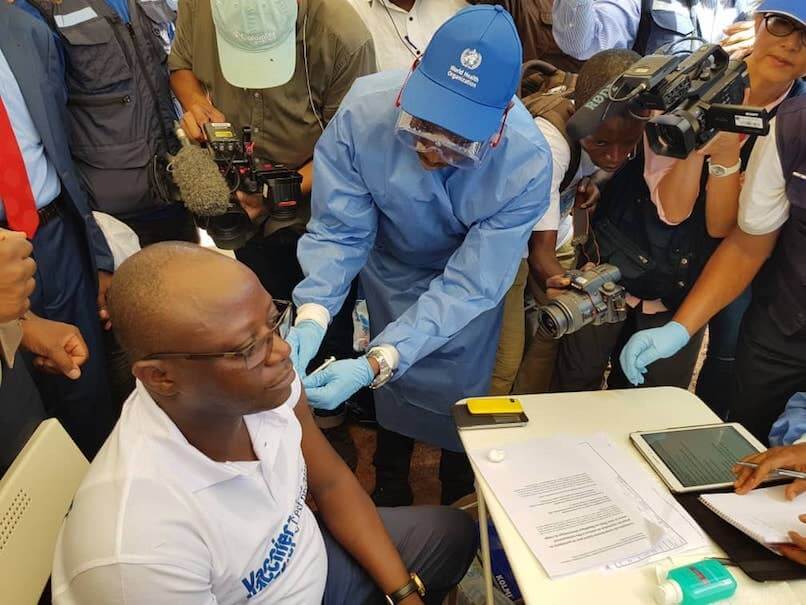Accelerating Antibody Discovery Pipelines for Infectious Disease

Recent outbreaks of deadly viruses like Ebola, Zika and Monkeypox have shocked the world with their impact. In nature, the viruses typically lie dormant in their animal hosts, accruing mutations that change their genetic make-up significantly. Once an event occurs that allows the viruses to jump to humans, our immune systems are not prepared. The viruses spread rapidly, causing significant, life threatening infection, reminding us just how vulnerable we are to these diseases. In response, governmental and non-governmental agencies, as well as universities and research institutions, are racing to develop programs to identify, characterize and control these viruses before they turn into full-blown pandemics.
These organizations are relying on medical research to develop solutions—with antibodies, vaccines, drugs, diagnostics, and information they can use to quickly attack and defeat these deadly viruses.

Ebola vaccination in the Democratic Republic of the Congo (Source: World Health Organization)
Two notable initiatives are addressing this challenge, with groundbreaking results.
In one case, the U.S. Army Medical Research Institute of Infectious Diseases (USAMRIID), in partnership with the Institut Pasteur in Dakar, Senegal (IPD) and the Nigerian Centre for Disease Control, sought to determine the type of disease and the origin of the recent outbreak of what was established as Nigerian Monkeypox to better understand its potential impact to public health.
Utilizing a Twist Pan-Viral Target Enrichment panel, developed through a joint collaboration with USAMRIID and Illumina, USAMRIID was able to enrich viral sequences at high resolution. This collaborative effort, described in the blog, Tracking Nigeria’s Monkeypox Outbreak with Next Generation Sequencing, led to high sensitivity detection and identification of viral sequences. Using viral genetic information, researchers were able to compare similarities and disparities in sample sequences and draw links between existing strains and pinpoint the origin of the outbreak. With this vital information, researchers can begin the process of antibody discovery.
In the second initiative, the Defense Advanced Research Projects Agency (DARPA) an agency of the U.S. Department of Defense, has asked Vanderbilt University Medical Center (VUMC) to join a project to develop a rapid response to deliver antibodies to help medical workers fight viral diseases in the field. Trying to cut the time to deliver treatment, DARPA has tasked Vanderbilt with developing protective antibodies that can be rushed to healthcare providers around the world within 60 days after the outbreak of viral diseases.
The VUMC lab, using high-throughput, synthetic genes from Twist Bioscience, has markedly hastened antibody discovery as the researchers strive to meet DARPA’s timelines. A new case study, Speeding Up Antibody Discovery for Infectious Disease, outlines just how Vanderbilt is designing new ways to accelerate the process.
Going forward, the rapid progression of these DNA synthesis techniques promises to notably enhance antibody discovery to fight these deadly diseases.
For reference:
The case study - Speeding Up Antibody Discovery for Infectious Disease
The blog - Tracking Nigeria’s Monkeypox Outbreak with Next Generation Sequencing
¿Qué piensa?
Me gusta
No me gusta
Me encanta
Me asombra
Me interesa
